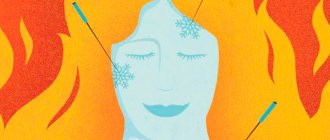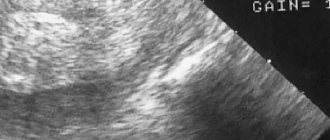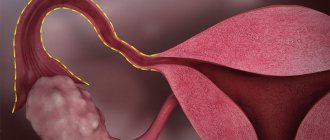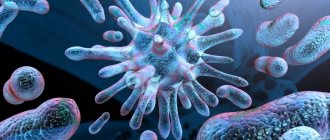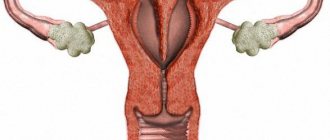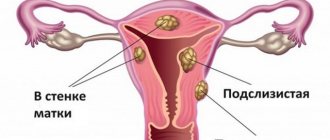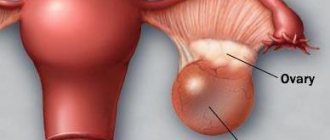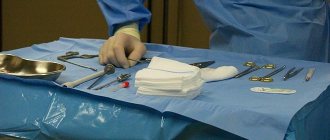Climax is a word that can be used to scare young women like children with Baba Yaga. Natural menopause occurs after approximately 45-50 years and is characterized by the extinction of the reproductive function of the female body and a sharp decrease in the production of sex hormones.
At the same time, there are a number of female diseases for the treatment of which artificial drug reduction in the level of sex hormones is used. Among these diseases are endometriosis, fibroids and uterine fibroids. Unfortunately, these diseases are not so rare, and endometriosis has recently become the “leader” among gynecological diseases and, in particular, the causes of infertility. Also, “switching off the ovaries” is carried out in IVF protocols. Since the state of a woman’s body is similar to menopause, this treatment is also called artificial menopause (AI). What kind of “beast” is this, should we be afraid of it, should we agree to it if a doctor prescribes it?
Indications for the procedure
Hormones in women are produced in the ovaries. During artificial menopause, the ovaries rest, as does the entire reproductive system as a whole. There are special indications for this step:
- Myoma. This is a tumor in the uterus that has a risk of developing into cancer. With artificial menopause, fibroids usually decrease in size. The doctor decides whether to do such a procedure during menopause, since sometimes it does not bring results.
- Ovarian cyst. A phenomenon caused by hormonal imbalance. If menstruation is artificially stopped, the cyst may resolve on its own.
- Fibroma. A tumor in the uterus, the treatment indications for which are similar to fibroids. Doctors sometimes recommend inducing a stop of menstruation.
- Uterine bleeding is also associated with hormonal imbalance. Artificial menopause improves the process.
Uterine discharge can be a sign of serious illness. At the first manifestations, consult a doctor to avoid malignant formations.
- Infertility. If doctors have checked and eliminated all possible causes of infertility, but pregnancy does not occur, doctors recommend resting the reproductive function through artificial menopause.
- Endometriosis. In this case, the procedure is rarely used.
We can come to the conclusion that artificial menopause is a rest for the female system, which leads to a temporary stop in production:
- eggs;
- ovulation;
- endometrium;
- menses.
The essence of artificial menopause
In essence, artificial menopause is a forced stop of the ovaries. This condition is caused by certain medications that block the production of sex hormones. As a result, the patient stops having periods completely and other signs of menostasis appear.
The difference between artificial menopause and natural menopause is the fact that after treatment of the underlying disease, the menstrual cycle can be returned. At the same time, women's reproductive function is completely restored. However, it is possible to stop the operation of the appendages for a period of no more than 6 months.
Just a few years ago, for some hormone-dependent pathologies, women were offered only surgical removal of the appendages, which put an end to the further possibility of pregnancy and childbirth. With the advent of medications that block estrogen synthesis, such patients have a chance to cure the underlying disease without surgery, and then completely return to a normal, fulfilling life.
Important! Forced ovarian shutdown should only be carried out under the supervision of the attending physician!
Types of artificial stopping of menstruation
The choice of artificial menopause method directly depends on the purpose of the procedure, the woman’s age and her subsequent desire to have children. There are three main types.
Surgical
This is the most radical method. It consists of completely removing the ovaries and stopping reproductive function. It is used when it comes to oncology. After this method, restoration of the body is impossible, and the woman will no longer have children. For young women it is used very rarely, almost never used. Sometimes the uterus is removed, but the ovaries are left behind. But in this case, early menopause soon occurs due to insufficient blood circulation in the ovaries.
Radiological
Used in the presence of malignant tumors. Similar to chemotherapy. This is radiation exposure to the ovaries, which causes menstruation to stop. After this method, complete restoration of reproductive functions does not occur.
Medicinal menopause
The safest type of artificial menopause. After it, complete recovery occurs and it is possible to have children. Treatment is usually prescribed either with tablets or injections. Common medications to stop menstruation:
- Zoladex;
- Buserelin;
- Lucrin;
- Diferelin.
The doctor prescribes the regimen. Usually it is 27-30 days. The drugs are also available in the form of injections. The injections are administered subcutaneously or intramuscularly. Before the procedure, warm the syringe in your hand. It is better to do them in a hospital under the supervision of medical staff.
During drug treatment, a woman is simultaneously prescribed vitamins. Usually Aevita is enough for good health.
Never stop your periods by purchasing medications yourself. Without the appointment of specialists, you can trigger irreversible processes in the body.
Why is artificial menopause needed and how does it proceed?
The main reasons for the need to stop the production of sex hormones are gynecological diseases that develop against the background of estrogen production. Today, there are dozens of such pathologies, and each of them requires specific therapy that blocks the functioning of the appendages.
When the ovaries are forcibly switched off, a sharp hormonal disruption occurs in the body, which stops the development of the underlying disease. During the natural course of menopause, estrogen levels decrease gradually over several years. As a result of these changes, irreversible changes occur that cause complete atrophy of the appendages. With medical menopause, atrophy does not develop and the reproductive system can be completely restored.
Read: What is surgical menopause?
Indications and contraindications
Indications for the procedure are:
- Uterine fibroids . This disease is characterized by the growth of a hormone-dependent benign tumor in the uterine cavity. Its growth and development is supported by the production of estrogen. In the case of this disease, artificial menopause allows you to sharply reduce estrogen levels and bring the tumor to the stage of regression. After this, the patient may be prescribed surgical removal of the fibroids.
- Endometriosis . This pathology is characterized by the growth of endometrial tissue outside the uterus. The disease progresses with the production of estrogen and after physiological menopause the woman fully recovers. For this reason, forced menopause can also completely cure the patient. It is this technique that underlies drug therapy for endometriosis.
- Ovarian cyst . Some forms of this benign neoplasm are prone to cancerous degeneration. The cyst can grow under the influence of estrogen produced in this organ, and forced stoppage of the appendage helps to reduce, and often completely disappear, the tumor.
- Infertility . If it is impossible to conceive a child, a forced stop in estrogen production, and then a sharp switching on of the ovaries helps to normalize the process of follicle release. This practice is used both when trying to conceive naturally and before IVF.
- Malignant hormone-dependent tumors . Tumors of the appendages, breasts and uterus undoubtedly require surgical intervention. Forced interruption of the reproductive system in this case is necessary as preoperative therapy to reduce the volume of the malignant neoplasm.
In all these cases, forced menopause allows one to achieve the desired therapeutic effect by reducing estrogen. Therapy is carried out under the strict supervision of a specialist and in most cases has a positive result. However, not all patients can use this therapy. The decision on the possibility of such treatment is made by the doctor, in the absence of the following contraindications:
- Chronic and acute pathologies of the heart and blood vessels;
- Psychical deviations;
- Insulin-dependent diabetes mellitus;
- Stroke;
- Heart attack;
- Thrombosis and thrombophlebitis;
- Liver diseases;
- Kidney failure;
- Lactation.
Important! If there are contraindications, IR is strictly prohibited, because such treatment can aggravate existing pathologies.
Possible consequences of the procedure
Of course, one should not expect that such a serious intervention will pass without leaving a trace on the body. There will be consequences. Their severity depends on the individual characteristics of the body.
After treatment, an exit from artificial menopause occurs. Menopause ends immediately after a woman stops taking the pill. However, recovery takes much longer.
When fake menopause occurs, hormones suddenly drop sharply to almost zero. Will this go unnoticed by the body? Of course not. He may immediately go into shock and experience severe stress. According to studies, about 60% of women who have undergone artificial menopause have a number of complications. Possible consequences:
- tides;
- sleep disturbances;
- migraine;
- depression;
- increased irritability;
- pain in the legs and arms;
- lack of libido;
- vaginal dryness;
- discharge;
- exacerbation of chronic diseases;
- hair, nails, skin change their appearance;
- pain of the urinary system.
You shouldn't be too scared, but you shouldn't ignore it either. Not everyone has such severe consequences. 14% of women tolerate this procedure easily. Please note that not all of the above manifestations come at once.
What medications make it possible to go through menopause before your due date?
Today, various medications can be used for artificial menopause, both in the form of injection solutions and in the form of sprays and tablets. These drugs can be purchased without a prescription, but their independent use is strictly prohibited. Most often, gynecologists prescribe the following drugs for artificial menopause:
- Diferelin - start using the 3rd day of the menstrual cycle. Course duration is up to 6 months.
- Goserelin is used subcutaneously, the course is no more than 6 months.
- Buserelin - nasal spray, course 2 times a day for no longer than 6 months.
- Zoladex - Injections used from 1 to 5 days of the menstrual cycle.
- Duphaston - tablets for artificial menopause containing homologues of gestogens.
Read
Pregnancy and menopause: is it possible?
How long artificial menopause lasts should be decided by a doctor. Typically therapy lasts 6 months, but everything is individual.
Signs of artificial stopping of menstruation
All signs are divided into two blocks:
Early signs
The most important symptom of menopause immediately appears - hot flashes. It is observed in almost 80% of all women in the early stages. Hot flashes occur up to 30 times a day! Other early signs include emotional changes: irritation, fatigue, drowsiness, and glare in the eyes. Along with the rest come headaches, dizziness, and sleep disturbances. The younger the woman, the easier she tolerates the early signs of menopause.
Late signs
With artificial menopause, late signs come much earlier than if menstruation had stopped naturally. The most common:
- frequent running to the toilet in small ways;
- blood pressure problems;
- osteoporosis;
- aging skin, hair, nail problems (due to lack of estrogen).
With artificial menopause, these symptoms can be delayed if the treatment is correctly determined.
Symptoms of the onset
Estrogens and progesterone regulate the activity of the nervous and cardiovascular systems, bone tissue, and mineral metabolism.
A sharp decrease in female hormones can be accompanied by symptoms such as:
- changes in blood pressure;
- emotional instability, irritability;
- sleep disturbance;
- flushes of sweat with a feeling of heat;
- arrhythmia and tachycardia;
- joint pain due to the removal of calcium from bone tissue;
- hyperhidrosis;
- general deterioration of health;
- dry mucous membranes;
- decreased libido.
Features of therapy
Therapy is selected depending on how the artificial menopause was caused. If we talk about surgical menopause, therapy that replaces missing hormones is very important. The regimen is selected individually; treatment should not be abruptly interrupted. For depression due to loss of the ability to give birth, therapy includes a visit to a psychologist.
For medicated menopause, homeopathic medications, vitamins, minerals, and sedatives are prescribed. With this type of menopause, late signs do not occur, and the woman easily returns to the normal rhythm of life.
Consequences and combating them
The main complications of artificial menopause include the following:
- in some cases, after drug-induced menopause, follicular atresia , in which the follicles in the ovary shrink before reaching maturity. The disease is accompanied by not heavy, but prolonged bleeding. Normalize ovarian function with hormonal therapy;
- if menopause was caused by radiation, ovarian activity may not fully recover . This in turn will cause hormonal imbalance, which will complicate the process of conception;
- surgical removal of the ovaries causes all the early and late symptoms of menopause : hot flashes, skin aging, muscle and joint pain, hypertension, heart problems, weight gain, brittle hair and nails;
- menopausal syndrome can cause urological disorders , frequent urination or urinary incontinence;
- reduced mental activity manifests itself in memory deterioration.
To alleviate a woman’s condition, she should:
- adjust your diet . It is recommended to minimize fast carbohydrates and give preference to cereals, vegetables, fruits, and dairy products. During this period, seafood, especially red fish, will be beneficial. Coffee, smoked and spicy foods should be removed from consumption;
- drink more , preferably still mineral water;
- take medications containing calcium ;
- engage in physical activity - swimming, cycling, walking in the fresh air;
- To make it easier to tolerate hot flashes, you need to wear loose clothing made from natural fabrics ;
- emotional instability should be eliminated with herbal sedatives : motherwort tincture, valerian, herbal tea;
- Vitamins, dietary supplements and homeopathic remedies will help improve hormonal levels ;
- A decoction with medicinal herbs will help ease your well-being : hawthorn, lemon balm, red clover, sage. These herbs have received good reviews from women when used;
- You should definitely give up smoking and strong alcoholic drinks .
IMPORTANT!
Depressive states during artificial menopause are considered normal. Consulting a psychologist will help you cope with stress after surgery.
State of the body after treatment
Getting out of artificial menopause is what worries most women who have resorted to this type of treatment. In fact, a complete system recovery occurs in a maximum of 4 months, or even earlier. Those who have been treated for infertility are worried about when ovulation will occur? There have been cases where pregnancy occurred in the second cycle. And my period started 6 weeks after it started.
Those who have been treated for tumor processes notice that the tumors and lesions have decreased, and the treatment gave the desired result.
How to improve your well-being?
Since it is impossible to use hormonal drugs to reduce the side effects that artificial menopause causes, you have to resort to various non-drug methods.
You can feel better by eating a healthy diet. The diet should include fresh fruits and vegetables, cereals, and fish. Less fast carbohydrates. Sweets, flour products, and potato dishes should be excluded. A complete abstinence from alcohol and other bad habits that only worsen hot flashes will help.
In addition, the following recommendations will help:
- Consume more fluid. Not hot drinks, but regular cool water. However, you should not overdo it - due to menopause, water retention may occur, which leads to an increase in blood volume in the body and an increase in blood pressure.
- Use homeopathic medicines usually prescribed for natural menopause.
- Take phytoestrogens (Klimadinon) and herbal sedatives.
- Do physical exercise, yoga, and walk more in the fresh air.
- Try to avoid stress.
The air in the room should always be sufficiently fresh and humidified so that hot flashes caused by menopause are repeated as rarely as possible.
Menstruation after menopause
As mentioned earlier, menstruation will definitely come: some earlier, some later, but it will happen. On average, ovulation occurs after two to four months. After such a break, the reproductive system is full of strength and ready for conception.
The nature of menstruation after artificial menopause usually changes. They become less abundant and not painful. Their duration decreases.
So, despite most of the prejudices and fears around artificial menopause, this procedure leads to a good result, and for some, this is the only chance to become parents.
Bloody discharge during menopause - causes
Any bleeding after menopause is a sign of pathological changes in the body. There may be several reasons:
- hormonal disbalance;
- diseases of the reproductive system;
- oncology;
- diseases of internal organs (some of them can provoke, including uterine bleeding).
Bloody discharge can also be a side effect of medications. If the bleeding is accompanied by pain, weakness, the discharge has a rotten smell or contains an admixture of pus, this is a reason to urgently consult a doctor. After receiving the test results, the specialist will be able to determine the exact cause and begin timely treatment.
Symptoms during artificial menopause
During natural menopause, ovarian function decreases gradually. When a woman experiences artificial menopause, everything happens exactly the opposite.
The female body is not prepared for unexpected estrogen deprivation. Therefore, the process of adaptation to a new situation may be accompanied by unpleasant symptoms. From a medical point of view, such manifestations are divided into early and late.
In the first case, clinical manifestations of artificial menopause develop on the first day after the start of treatment. The main early manifestations of these include :
- excessive sweating;
- insomnia;
- headache and dizziness;
- weakness;
- discomfort during urination;
- sudden mood swings;
- decreased sex drive;
- itching and dryness in the vaginal area.
Late symptoms of artificial menopause develop after a certain time, usually after 2–3 months . For example:
- dry scalp and brittle hair;
- osteoporosis;
- tendency to increased thrombosis;
- sensitivity and dryness of the skin throughout the body;
- atherosclerosis;
- high blood pressure.
There are quite a few side symptoms during artificial menopause, but do not be alarmed. Not all of them appear at the same time. Any clinical manifestations are individual for each woman , and for some they may be completely absent.
